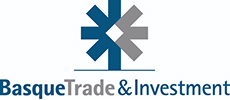Germany
Germany is a key trade partner for the Basque Country and is, along with France, one of the main destinations for Basque exports. Since the mid-20th century, when Basque industry began to expand beyond its frontiers, Germany emerged as a priority market for fundamental sectors such as steelmaking, industrial machinery and, in more recent decades, the automotive industry and renewable energy.
The relationship has been driven by the complementary aspects of both economies. On the one hand, Basque companies with their robust industrial base and innovative power have found in Germany not only a sound market for their products, but also a key partner for the transfer of technology and the joint development of advanced solutions. On the other hand, the presence of large German multinationals has bolstered the trade relations and business interdependence that continues to be vital for both territories.
The main trade partner of Basque companies
Germany holds a leading position on the global stage as one of the main political and economic powers of the world. Germany, with Europe’s largest economy and the fourth in the world, is a key driver of economic growth in the European Union and an influential player in international financial and political decisions.
Apart from being an economic powerhouse, Germany plays a crucial role in global governance by means of its involvement in multilateral organisations such as the European Union, the G7, the G20 and the UN. It is known for its focus on international cooperation, promoting free trade, and fighting climate change.
Alicia Santamaría
Director of Basque Trade & Investment Germany
BASQUE TRADE & INVESTMENT DEUTSCHLAND
* Office hours:
Monday to Friday: 9.00 a.m. to 5.30 p.m.
